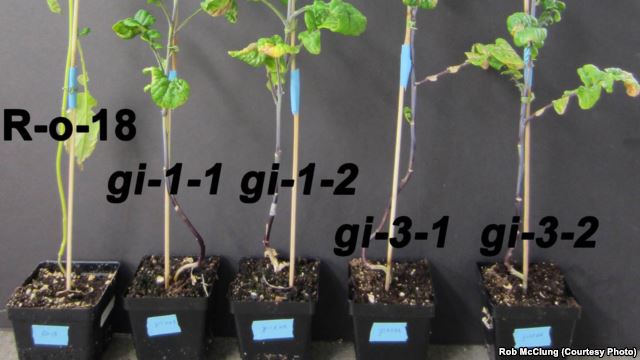
   |

[전문 + mp3] / [받아쓰기] / [동영상 + 영작]
Plants have a “biological clock” that tells them when to produce leaves, seeds and other growth. A new study says understanding that clock may help scientists develop crops that can feed a growing population in an increasingly warmer world. Rob McClung is a scientist at Dartmouth College. He says scientists need to create ways to feed the nearly 10 billion people who will be living on Earth by the middle of the century.
* biological clock = 생체 시계/ produce = 생산하다/ seed = 씨, 씨앗/ growing population = 증가하는 인구/ feed = 먹이를 주다; 밥[우유]을 먹이다/ nearly = 거의/ by the middle of ~ = ~의 중반쯤
He says estimates show that there will need to be an increase in the world food supply of about 50 to 60 percent in the next thirty-five years. “And we're worried that the things that we've done to increase agricultural productivity may be becoming exhausted.” To find new ways to increase productivity, Mr. McClung examined the biological clocks of plants. He learned that different genes in plants affect the plant's clock.
* estimate = 추산(치), 추산/ agricultural productivity = 농업생산력/ exhaust = 다 써 버리다, 고갈시키다
   |




